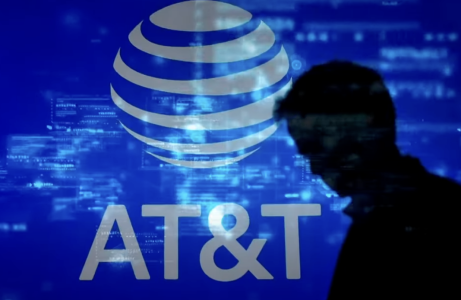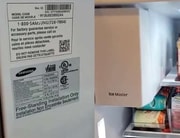Are your personal details at risk? Massive AT&T hack leaks 86 million records including Social Security numbers
- Replies 0
If you’re an AT&T customer—or have ever been one—now’s the time to sit up and pay attention.
In one of the largest data breaches in recent memory, the personal information of more than 86 million AT&T customers has been leaked onto the dark web, and the details are enough to make anyone’s hair stand on end.
We’re talking full names, birthdates, phone numbers, email addresses, home addresses, and, most alarmingly, 44 million Social Security numbers—completely unencrypted and ripe for the picking.
Let’s break down what happened, what it means for you, and, most importantly, what you can do right now to protect yourself and your loved ones.
What Happened? The Anatomy of a Massive Breach
On June 3, a Russian cybercrime forum became the epicenter of a digital earthquake: hackers posted a trove of AT&T customer data, making it available to anyone with a dark web connection and a nefarious intent.
The files were neatly packaged into three CSV files, making them easy to download, search, and exploit.

The breach is linked to a cyberattack that targeted Snowflake, a major US-based cloud storage provider used by AT&T and other big companies to manage sensitive data.
The hackers reportedly gained access by exploiting accounts that didn’t have multi-factor authentication (MFA) enabled—a basic security measure that, if in place, could have stopped them in their tracks.
The hacking group behind this breach, known as ShinyHunters, is no stranger to the headlines.
They’ve also been linked to the recent Ticketmaster breach, which compromised the data of 560 million people. Their growing list of high-profile attacks has lawmakers and cybersecurity experts sounding the alarm.
What Data Was Stolen?
The scope of the breach is staggering. Here’s what’s out there:
- Full names
- Birthdates
- Phone numbers
- Email addresses
- Home addresses
- Social Security numbers (for 44 million people, in plain text)
This isn’t just a list of emails or phone numbers. With this much information, criminals can open credit lines, impersonate victims, or even apply for government services in your name.

Is This “Old News?” Not Quite.
AT&T has stated that much of the data was originally stolen in 2019, and the 73 million affected customers were notified at the time.
“After analysis by our internal teams as well as external data consultants, we are confident this is repackaged data previously released on the dark web,” said AT&T in a statement.
However, cybersecurity researchers at Hackread have found that the latest leak contains both old and new records, and the data has been “repackaged” to make it even easier for criminals to use.
Even if you were notified years ago, this new leak means your information could be circulating again—potentially in more hands than ever before.
How Do I Know If I’m at Risk?
If you’re a current or former AT&T customer, your data could be part of this breach. To check if your information was exposed, visit the cybersecurity firm’s website at https://npd.pentester.com. Enter your details to see if you’re affected.
But don’t stop there. Even if you don’t find your information on that site, it’s wise to take precautions. Data from breaches can be sold, resold, and repackaged for years.
What Should I Do Now?
Here’s your action plan:
1. Monitor Your Credit Reports
Check your credit reports regularly for any unfamiliar activity. You’re entitled to a free report from each of the three major credit bureaus every year at AnnualCreditReport.com.
2. Consider a Credit Freeze or Fraud Alert
A credit freeze prevents anyone from opening new accounts in your name. It’s free and can be lifted whenever you need. A fraud alert notifies lenders to take extra steps to verify your identity.

3. Watch for Suspicious Activity
Be on the lookout for unexpected bills, emails, or phone calls. If you receive notices about accounts you didn’t open, act immediately.
4. Change Your Passwords and Enable Multi-Factor Authentication
If you use the same password for multiple accounts, change them now. And always enable MFA where available—it’s one of the simplest ways to keep hackers out.
5. Be Wary of Phishing Scams
Hackers may use your leaked information to craft convincing emails or calls. Never give out personal information unless you’re sure who you’re talking to.
6. Sign Up for Identity Theft Protection
Consider enrolling in a reputable identity theft protection service, especially if your Social Security number was exposed.
What’s Next? Lawmakers Demand Answers
The fallout from this breach is far from over. Senators Richard Blumenthal and Josh Hawley have called on AT&T and Snowflake to explain how this happened—and what they’re doing to prevent it from happening again.
Security experts warn that the leak of decrypted Social Security numbers and birthdates is particularly serious, since it allows criminals to commit identity theft by opening credit accounts, posing as victims, or applying for government benefits.
“The original breach of sensitive records from AT&T was enough to worry their customers, now it poses a significant risk to their identities,” said Thomas Richards, Infrastructure Security Practice Director at Black Duck.
In 2024, AT&T attempted to contain the damage by paying a $370,000 ransom—converted into Bitcoin—to an intermediary known as "Reddington," in hopes the stolen data would be erased.
Although the company was shown a video that appeared to show the deletion of the files, experts caution there’s no way to verify whether the data was duplicated or distributed beforehand.
Read next: Older Americans impacted as T-Mobile settlement hits delay—here’s how to protect your info

Have you ever been affected by a data breach? Do you have tips for keeping your information safe? Or maybe you have questions about what to do next? We want to hear from you! Share your experiences and advice in the comments below!
In one of the largest data breaches in recent memory, the personal information of more than 86 million AT&T customers has been leaked onto the dark web, and the details are enough to make anyone’s hair stand on end.
We’re talking full names, birthdates, phone numbers, email addresses, home addresses, and, most alarmingly, 44 million Social Security numbers—completely unencrypted and ripe for the picking.
Let’s break down what happened, what it means for you, and, most importantly, what you can do right now to protect yourself and your loved ones.
What Happened? The Anatomy of a Massive Breach
On June 3, a Russian cybercrime forum became the epicenter of a digital earthquake: hackers posted a trove of AT&T customer data, making it available to anyone with a dark web connection and a nefarious intent.
The files were neatly packaged into three CSV files, making them easy to download, search, and exploit.

A major data breach has exposed the personal information of 86 million former and current AT&T customers. Image source: NBC News / Youtube.
The breach is linked to a cyberattack that targeted Snowflake, a major US-based cloud storage provider used by AT&T and other big companies to manage sensitive data.
The hackers reportedly gained access by exploiting accounts that didn’t have multi-factor authentication (MFA) enabled—a basic security measure that, if in place, could have stopped them in their tracks.
The hacking group behind this breach, known as ShinyHunters, is no stranger to the headlines.
They’ve also been linked to the recent Ticketmaster breach, which compromised the data of 560 million people. Their growing list of high-profile attacks has lawmakers and cybersecurity experts sounding the alarm.
What Data Was Stolen?
The scope of the breach is staggering. Here’s what’s out there:
- Full names
- Birthdates
- Phone numbers
- Email addresses
- Home addresses
- Social Security numbers (for 44 million people, in plain text)
This isn’t just a list of emails or phone numbers. With this much information, criminals can open credit lines, impersonate victims, or even apply for government services in your name.

The hack is linked to vulnerabilities in the Snowflake cloud storage platform and was carried out by the Russian cybercrime group ShinyHunters, who bypassed accounts without multi-factor authentication. Image source: NBC News / Youtube.
Is This “Old News?” Not Quite.
AT&T has stated that much of the data was originally stolen in 2019, and the 73 million affected customers were notified at the time.
“After analysis by our internal teams as well as external data consultants, we are confident this is repackaged data previously released on the dark web,” said AT&T in a statement.
However, cybersecurity researchers at Hackread have found that the latest leak contains both old and new records, and the data has been “repackaged” to make it even easier for criminals to use.
Even if you were notified years ago, this new leak means your information could be circulating again—potentially in more hands than ever before.
How Do I Know If I’m at Risk?
If you’re a current or former AT&T customer, your data could be part of this breach. To check if your information was exposed, visit the cybersecurity firm’s website at https://npd.pentester.com. Enter your details to see if you’re affected.
But don’t stop there. Even if you don’t find your information on that site, it’s wise to take precautions. Data from breaches can be sold, resold, and repackaged for years.
What Should I Do Now?
Here’s your action plan:
1. Monitor Your Credit Reports
Check your credit reports regularly for any unfamiliar activity. You’re entitled to a free report from each of the three major credit bureaus every year at AnnualCreditReport.com.
2. Consider a Credit Freeze or Fraud Alert
A credit freeze prevents anyone from opening new accounts in your name. It’s free and can be lifted whenever you need. A fraud alert notifies lenders to take extra steps to verify your identity.

Although some affected customers were previously notified after an initial 2019 breach, new records appear to have been accessed and the data has now been widely shared and repackaged on cybercrime forums. Image source: NBC News / Youtube.
3. Watch for Suspicious Activity
Be on the lookout for unexpected bills, emails, or phone calls. If you receive notices about accounts you didn’t open, act immediately.
4. Change Your Passwords and Enable Multi-Factor Authentication
If you use the same password for multiple accounts, change them now. And always enable MFA where available—it’s one of the simplest ways to keep hackers out.
5. Be Wary of Phishing Scams
Hackers may use your leaked information to craft convincing emails or calls. Never give out personal information unless you’re sure who you’re talking to.
6. Sign Up for Identity Theft Protection
Consider enrolling in a reputable identity theft protection service, especially if your Social Security number was exposed.
What’s Next? Lawmakers Demand Answers
The fallout from this breach is far from over. Senators Richard Blumenthal and Josh Hawley have called on AT&T and Snowflake to explain how this happened—and what they’re doing to prevent it from happening again.
Security experts warn that the leak of decrypted Social Security numbers and birthdates is particularly serious, since it allows criminals to commit identity theft by opening credit accounts, posing as victims, or applying for government benefits.
“The original breach of sensitive records from AT&T was enough to worry their customers, now it poses a significant risk to their identities,” said Thomas Richards, Infrastructure Security Practice Director at Black Duck.
In 2024, AT&T attempted to contain the damage by paying a $370,000 ransom—converted into Bitcoin—to an intermediary known as "Reddington," in hopes the stolen data would be erased.
Although the company was shown a video that appeared to show the deletion of the files, experts caution there’s no way to verify whether the data was duplicated or distributed beforehand.
Read next: Older Americans impacted as T-Mobile settlement hits delay—here’s how to protect your info
Key Takeaways
- A major data breach has exposed the personal information of 86 million former and current AT&T customers, including full names, birthdates, phone numbers, email and home addresses, and 44 million Social Security Numbers in plain text.
- The hack is linked to vulnerabilities in the Snowflake cloud storage platform and was carried out by the Russian cybercrime group ShinyHunters, who bypassed accounts without multi-factor authentication.
- Although some affected customers were previously notified after an initial 2019 breach, new records appear to have been accessed and the data has now been widely shared and repackaged on cybercrime forums.
- Security experts are urging affected customers to monitor their credit reports, take steps to protect their identities, and check if their details were leaked via npd.pentester.com, while US law enforcement investigates and lawmakers demand accountability from AT&T and Snowflake.
Have you ever been affected by a data breach? Do you have tips for keeping your information safe? Or maybe you have questions about what to do next? We want to hear from you! Share your experiences and advice in the comments below!






